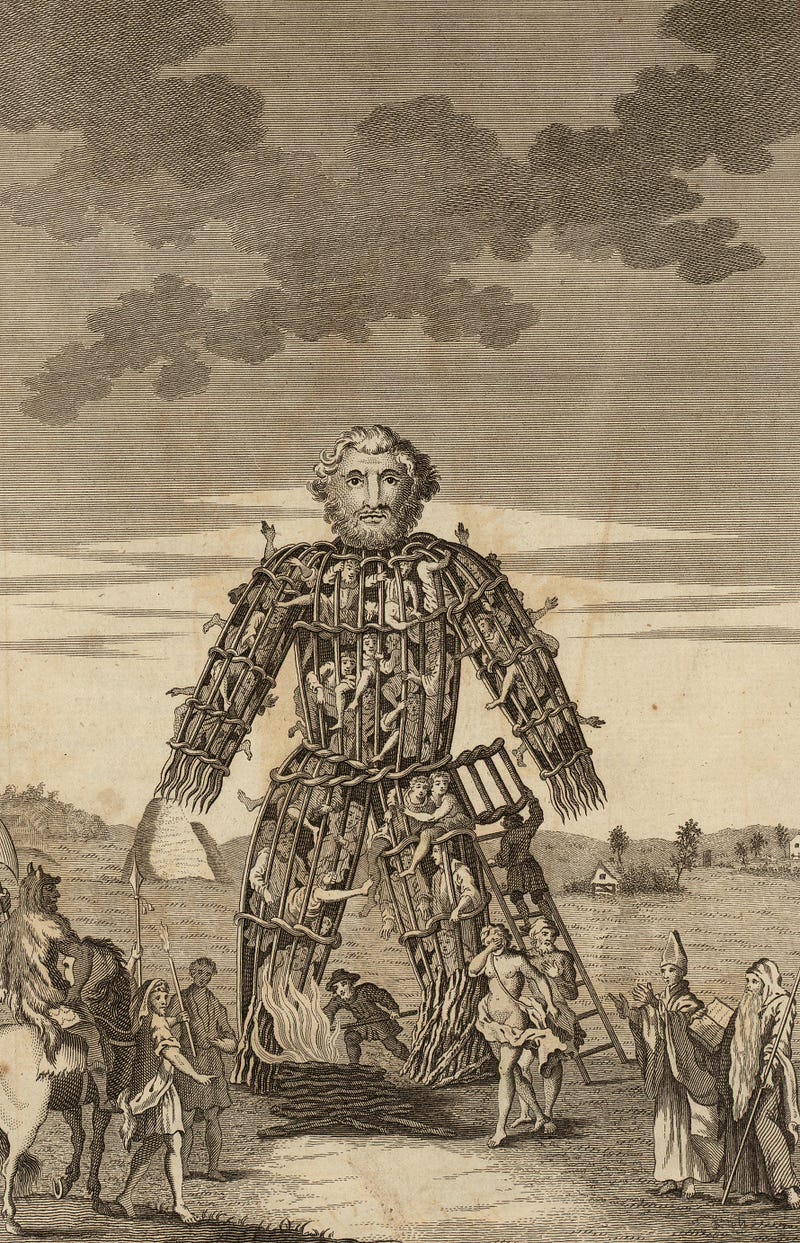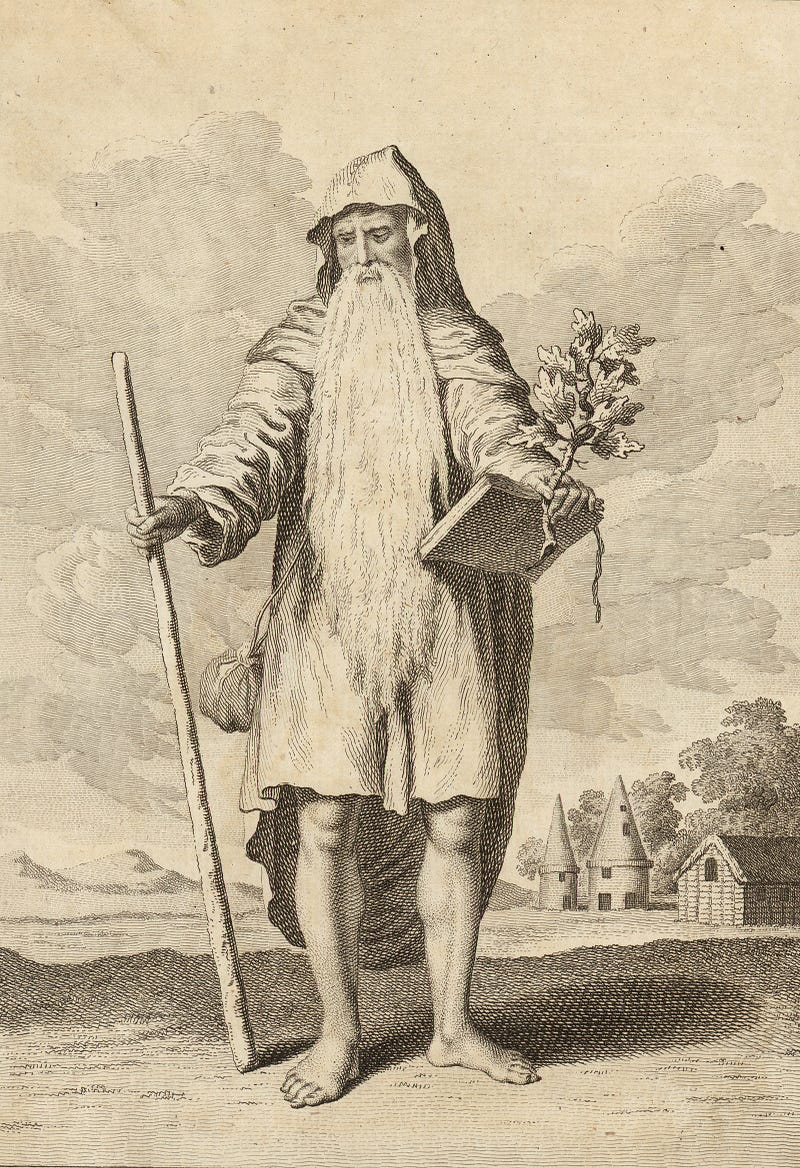The Mysterious Druids: Rituals, Sacrifices, and Social Status
Written on
Chapter 1: The Role of Druids in Celtic Society
The druids served as key figures in overseeing sacrifices to the deities, with evidence indicating that these rituals sometimes involved human offerings. They held numerous privileges, such as exemption from taxes and military duties.
Many societies have a distinct way of connecting the natural and supernatural realms through rituals led by specialized individuals, a practice that was prevalent in Celtic culture as well.
Section 1.1: Who Were the Druids?
The primary intermediaries between the spiritual and earthly worlds were known as druids (Latin: druides; Irish: druad; Welsh: dryw, meaning "oak knowledge" or "profound knowledge"). Another class, referred to as vates (Old Irish: fathi), appeared to consist of seers or those divinely inspired to understand the unseen.
In his accounts, Caesar provides a thorough and compelling depiction of the druids’ societal roles (Gallic War VI 13–14). They were part of the elite class, presiding over all sacrifices—both public and private—while also rendering judgments on religious matters and mediating legal disputes.
To enforce their decisions, druids could forbid individuals who failed to meet their obligations from participating in sacrifices, effectively isolating them from divine favor and normal social interactions: “they avoid contact and conversation with him, lest they too be tainted by misfortune.”
Section 1.2: The Structure of Druidic Leadership
In Gaul, druids selected a high druid from among their ranks, who would serve for life. The annual gathering of druids occurred in the Carnutes’ territory, viewed as the heart of Gaul, where significant issues were debated.
These scholars enjoyed substantial privileges, including tax and military service exemptions. Many aspiring druids dedicated up to twenty years to mastering their traditions, relying heavily on memorization. While this rigorous training may have sharpened the mind, it also served to maintain the exclusivity of their knowledge. Caesar suggested that druidic teachings originated in Britain and were brought to Gaul; however, if true, this may imply a decline in druidic power in Gaul due to changing social dynamics.
Chapter 2: Human Sacrifices and Druidic Rituals
The druids were tasked with overseeing offerings to the gods, and there is considerable evidence that human sacrifices were part of these rituals. Ancient writers often linked druidism with such practices, with the Romans hypocritically condemning these acts.
Tacitus described the altars on Anglesey as "dripping with human blood," justifying the destruction of the druidic class. The Roman concern was likely not moral but rather a fear of druids’ potential to rally Celtic resistance.
Notably, the unrest in Gaul in 53 BC began with the Carnutes, where druids held their annual assembly, while Boudica’s rebellion in Britain was sparked right after the Roman assault on the druidic center in Anglesey. In both instances, druids may have acted as catalysts for rebellion.
Numerous ancient texts reference human sacrifices by the Gauls. Lucan noted different forms of death preferred by various deities, while Strabo reported various methods of execution, including the construction of a large straw statue into which both animals and people were burned.

The evidence for human sacrifices is surprisingly scarce in archaeological finds. The Lindow Man, discovered in a Cheshire bog and dating back to the 1st or 2nd century AD, is a notable example of ritualistic death, exhibiting signs of a violent demise.
While there are several Iron Age bodies found in Irish bogs that suggest ritual sacrifices, findings from various sites in southern Britain raise doubts about their sacrificial nature. The distinction between burial methods may indicate sacrifices to deities associated with the underworld.

Attention all readers!
As content creators on Medium.com, we face minimal compensation for our hard work. If you find value in my articles, please consider supporting me on my “Buy Me a Coffee” page. Your small contributions can make a big difference in fueling my passion for creating quality content. Thank you for your support!
